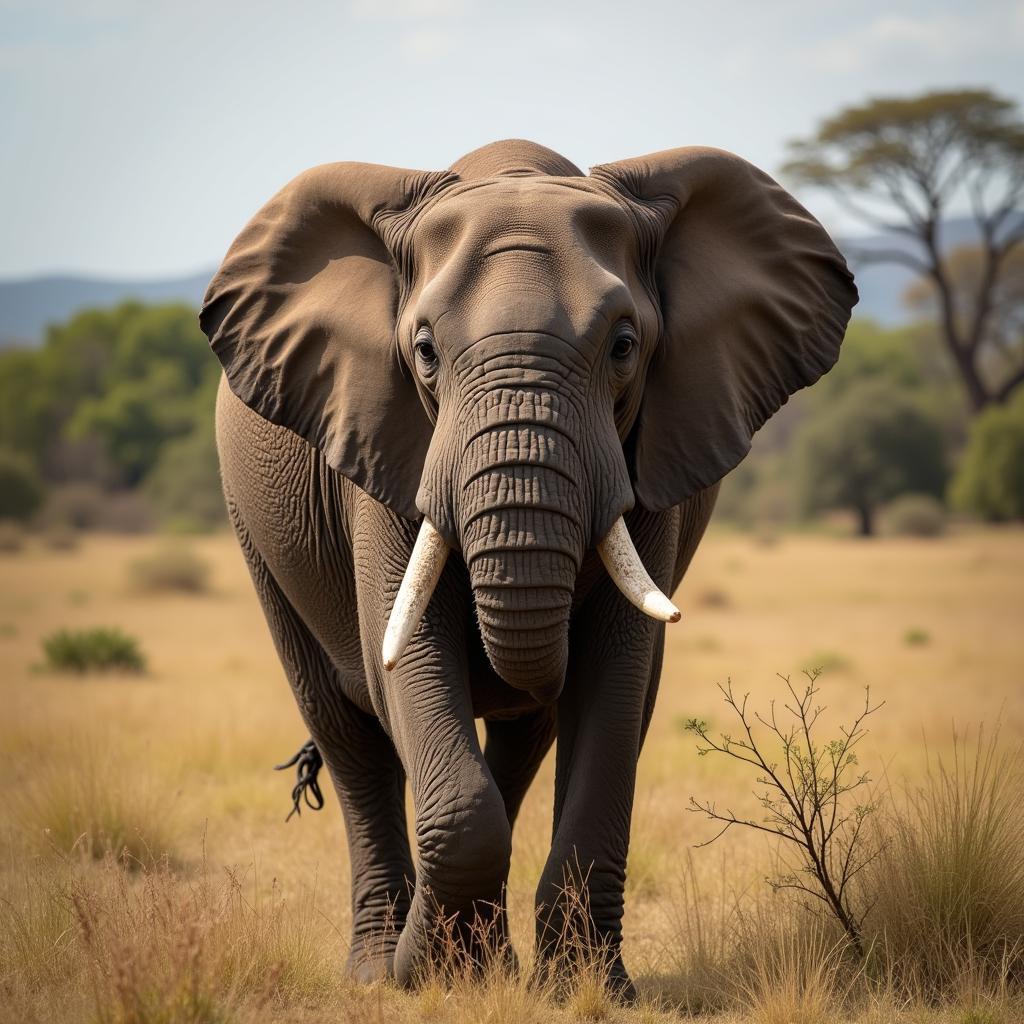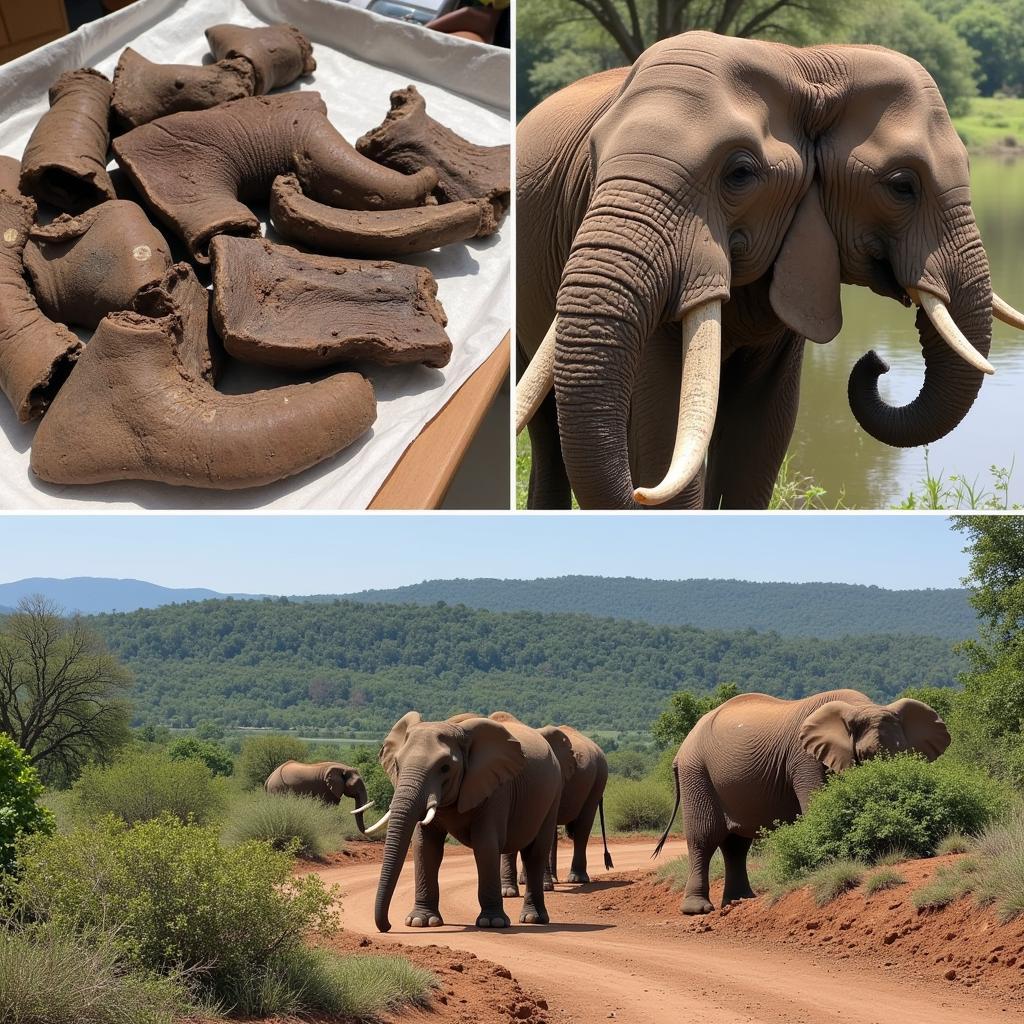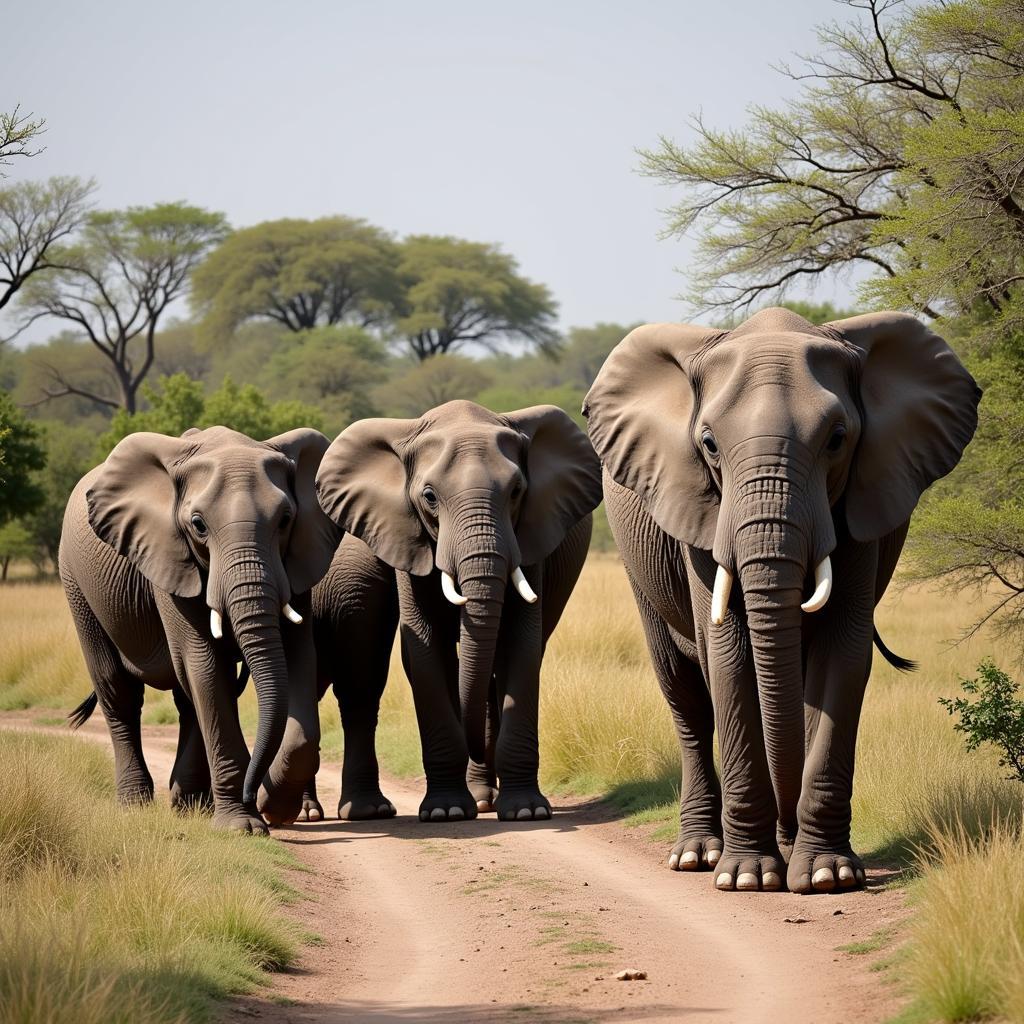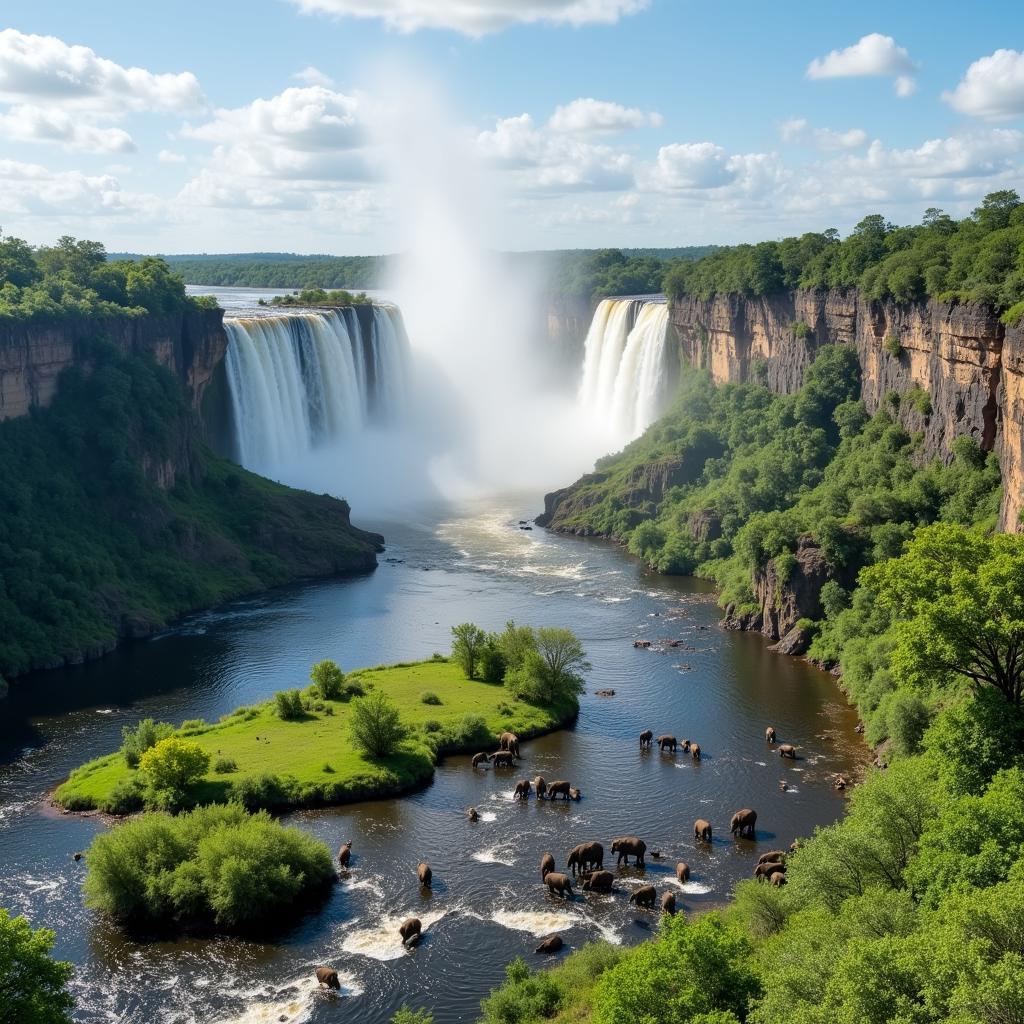African Elephant Conservation Status: A Deep Dive
African Elephant Conservation Status is a critical topic, demanding global attention. The plight of these majestic creatures reflects the broader challenges facing African wildlife and ecosystems. Understanding the current situation is crucial for effective conservation efforts.
 African Elephant Conservation Status: A Threatened Species
African Elephant Conservation Status: A Threatened Species
Understanding the African Elephant Conservation Status
The International Union for Conservation of Nature (IUCN) recognizes two species of African elephants: the savanna elephant ( Loxodonta africana) and the forest elephant ( Loxodonta cyclotis). Both face significant threats, but their conservation statuses differ. The savanna elephant is currently listed as african elephants iucn “Endangered,” while the forest elephant is listed as “Critically Endangered.” This highlights the urgency of conservation efforts, especially for the forest elephant populations. These classifications reflect the alarming decline in elephant numbers over recent decades, primarily due to poaching for ivory and habitat loss.
What does “Endangered” and “Critically Endangered” mean for African Elephants?
These classifications, assigned by the IUCN, indicate the severity of the threats facing these species. “Endangered” means the species faces a very high risk of extinction in the wild, while “Critically Endangered” signifies an even greater risk, indicating the species is on the brink of extinction. The african elephant iucn status classifications are based on scientific assessments of population trends, threats, and other factors.
Poaching for ivory remains a major threat, driving down elephant populations. Habitat loss due to human expansion, including agriculture and infrastructure development, further restricts the elephants’ range and access to resources. These challenges require comprehensive conservation strategies to ensure the survival of these iconic animals.
 African Elephant Poaching and Habitat Loss
African Elephant Poaching and Habitat Loss
The Impact of Habitat Loss and Poaching
Habitat loss forces elephants into closer contact with humans, leading to human-wildlife conflict. This conflict often results in the killing of elephants perceived as a threat to crops or property. Furthermore, fragmented habitats make it difficult for elephants to find food and water, impacting their survival and reproductive rates. Poaching decimates elephant populations, disrupting social structures and removing key individuals from the gene pool.
Why are African Elephants Important?
African elephants are keystone species, playing a crucial role in their ecosystems. They are ecosystem engineers, shaping the landscape through their feeding habits and creating habitats for other animals. Their loss would have cascading effects on the entire ecosystem. Seeing african animals in zoo is not the same as preserving their natural habitats.
Dr. Anika Malima, a leading wildlife biologist based in Tanzania, emphasizes this point: “African elephants are not just individual animals; they are integral to the health and balance of African ecosystems. Their loss would be devastating.”
Conservation Efforts and the Future
Numerous organizations and governments are working to protect African elephants. These efforts include anti-poaching patrols, community-based conservation programs, and efforts to reduce human-wildlife conflict. Raising awareness about the african elephant weight facts and their significance to the environment is crucial. Supporting sustainable tourism can provide economic incentives for communities to protect elephants and their habitats.
What can we do to help?
We all have a role to play in conserving African elephants. Supporting reputable conservation organizations, advocating for stronger anti-poaching measures, and making conscious consumer choices to avoid ivory products can make a difference. Understanding the difference in size between an african elephant vs indian elephant fight highlights the unique characteristics of each species and reinforces the need for species-specific conservation strategies.
Professor Jabari Olagoke, a renowned conservationist from Kenya, states, “The future of African elephants rests on our collective action. We must work together to ensure these magnificent animals continue to roam the African savannas and forests for generations to come.”
 African Elephant Future Conservation
African Elephant Future Conservation
The African elephant conservation status remains a serious concern. However, with continued and concerted efforts, there is hope for the future of these magnificent creatures. We must act now to protect them and ensure their survival for generations to come.
FAQ:
- What is the current population of African elephants?
- How does habitat loss affect African elephants?
- What are the main threats to African elephants?
- What is being done to protect African elephants?
- How can I help with African elephant conservation?
- What is the difference between the savanna and forest elephant?
- Why is ivory poaching such a big problem?
More Information:
- Find out more about elephant conservation efforts in our article on “Protecting African Wildlife.”
- Learn more about the different types of African elephants in our guide to “African Wildlife Identification.”
When you need assistance, please contact Phone Number: +255768904061, Email: [email protected] Or visit: Mbarali DC Mawindi, Kangaga, Tanzania. We have a 24/7 customer service team.



